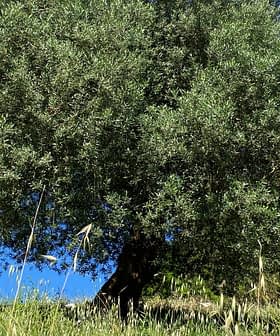The global initiative launched by the International Olive Council (IOC) to preserve multiple olive cultivars’ unique germplasm, protect biodiversity and foster olive research has now expanded to Argentina.
In a note, IOC announced that the olive plant collection established at the Experimental Agricultural Facility of San Juan in Argentina had become South America’s only international germplasm bank.
Argentina’s collection is part of the National Institute of Agricultural Technology (INTA), and it is maintained in collaboration with the National Council for Scientific and Technical Research (CONICET).
“This recognition was granted after a specific mission to this country to verify the accomplishment of the needed requirements took place. This mission was attended by Lhassane Sikaoui, Head of the olive growing, olive oil technology and environment Unit of the IOC, and by Melek Veral, IOC expert and Head of the International Olive Collection of Izmir, Turkey,” IOC noted.
Olive germplasm banks play a crucial role in enabling the correct classification of olive tree cultivars. As olive farming has spread to new countries and farming areas, the need for accurate classification of the plants has occurred.
Germplasm
Germplasm refers to the genetic material that can be used for the improvement or preservation of plants or animals. It includes the entire genetic information of an organism, such as its genes, chromosomes, and DNA. Germplasm is stored in seed banks, gene banks, and other facilities to conserve and use it for research and breeding purposes. This genetic material can be used to create new plant and animal varieties, to preserve endangered species, or to improve crops and livestock.
On top of that, the 21 germplasm banks that make up the IOC network certify and verify the health status of any plant material exchanged between member banks.
Thanks to the network, research projects have been launched to authenticate and ensure the health of the most propagated cultivars in olive-growing countries.
Today’s announcement does not come as a surprise. Last May, IOC representatives, local authorities and promoters of the initiative took part in a series of meetings paving the way for Argentina’s formal entry into the germplasm bank network.
The other three international IOC banks are located in Córdoba, Spain; Marrakech, Morocco; and Izmir, Turkey.









